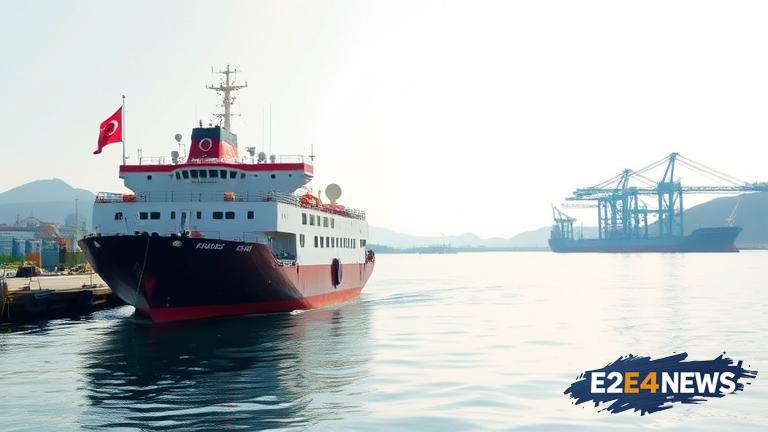In a move to increase security measures and respond to rising tensions with Israel, Turkey has implemented stricter regulations for vessels linked to the country. This decision comes amidst a period of heightened diplomatic strain between Turkey and Israel, with both nations engaging in a war of words and reciprocal actions. The Turkish government has expressed concerns over the potential for Israeli-linked vessels to pose a threat to national security, prompting the need for enhanced scrutiny and control. As a result, vessels with ties to Israel will face more rigorous inspections and clearance procedures before being granted access to Turkish ports. This includes a thorough examination of cargo, crew, and vessel documentation to ensure compliance with Turkish laws and regulations. The Turkish authorities will also be conducting background checks on vessel owners, operators, and crew members to identify any potential links to Israel. Furthermore, Turkey has warned that any vessel found to be in violation of these regulations will be subject to penalties, including fines and possible detention. The move is seen as a response to Israel’s recent actions, which Turkey perceives as provocative and threatening to regional stability. The escalation of tensions between the two nations has significant implications for regional trade and security, with potential repercussions for global markets. The Turkish government has emphasized its commitment to maintaining the safety and security of its ports, while also upholding its sovereignty and national interests. In recent years, Turkey has been actively working to strengthen its maritime security, investing in advanced technologies and enhancing its naval capabilities. The country’s strategic location, bridging Europe and the Middle East, makes its ports a critical hub for international trade and commerce. As such, the imposition of stricter regulations on Israel-linked vessels is likely to have far-reaching consequences, affecting not only bilateral relations but also the broader regional dynamics. The international community is closely monitoring the situation, with many nations calling for calm and restraint. The United States, in particular, has urged both Turkey and Israel to engage in diplomatic efforts to resolve their differences peacefully. Meanwhile, the European Union has expressed concerns over the potential impact on regional stability and trade. As the situation continues to unfold, it remains to be seen how the imposition of stricter regulations on Israel-linked vessels will affect Turkey’s relations with other nations, including its allies and trade partners. The Turkish government has reiterated its commitment to upholding international law and maintaining the free flow of trade, while also protecting its national interests. In the face of rising tensions, Turkey’s ports will continue to play a critical role in regional trade, with the country seeking to balance its security concerns with the need to maintain economic stability. The ongoing situation highlights the complex and often fraught nature of international relations, where diplomatic tensions can have significant repercussions for global trade and security. As the world watches the developments between Turkey and Israel, it is clear that the imposition of stricter regulations on Israel-linked vessels marks a significant escalation in the ongoing dispute between the two nations.
